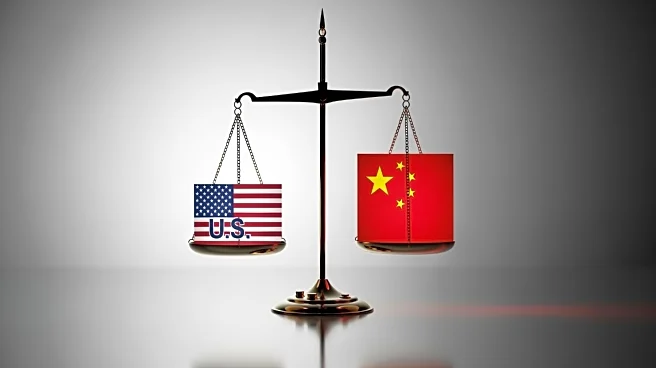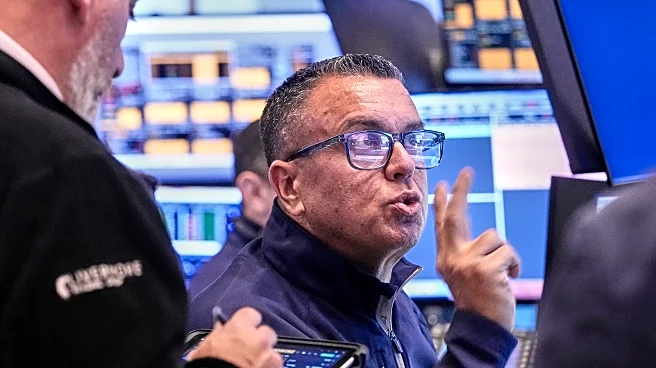What's Happening?
Barry Eichengreen, a distinguished professor at the University of California Berkeley, has expressed that the ongoing trade tensions between the U.S. and China are unsustainable and predicts that a trade agreement will eventually be reached. Eichengreen highlights
the economic burden that a complete breakdown in trade relations would impose on both countries, suggesting that the costs are too high for either side to bear. He also notes concerns about the internationalization of the Chinese renminbi and the dominance of the U.S. dollar as a reserve currency.
Why It's Important?
The U.S.-China trade war has significant implications for global economic stability. A resolution could ease tensions and potentially lead to more stable international trade relations. The ongoing conflict affects various industries, including technology, agriculture, and manufacturing, with potential repercussions for global supply chains. A trade agreement could benefit businesses and consumers by reducing tariffs and fostering a more predictable economic environment. However, the uncertainty surrounding the trade war continues to pose risks to economic growth and investor confidence.
What's Next?
While a resolution is anticipated, the timeline and specifics of any potential trade agreement remain uncertain. Both countries may need to make concessions to reach a mutually beneficial deal. Stakeholders, including businesses and policymakers, will be closely monitoring developments, as the outcome could influence future trade policies and economic strategies. The international community will also be watching, as the resolution of the trade war could set precedents for handling similar conflicts in the future.

















